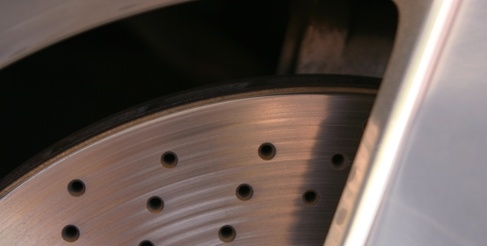
Brake pads are the part of a breaking system that pinch down on the disc or drum to transfer stopping power from the system's master cylinder to the vehicle's wheels. As such, brake pads should never become contaminated with hydraulic fluid, or brake fluid.
Brake pads and brake fluid work in concert as part of a system designed to stop vehicles as quickly and efficiently as possible. Part of that system is high levels of friction between the pads and the brake disc or drum. Calipers transfer hydraulic pressure to the pads, which, in turn, pinch down on the disc or drum.
The hydraulic system in a vehicle's braking system relies on DOT-3 brake fluid, an oily substance that flows easily through narrow brake lines and keeps the calipers and master cylinder, which produces pressure, lubricated.
Occasionally, brake lines will rust or fittings will fail and brake fluid will leak onto brake pads or the disc. When this occurs, it is imperative to remove and discard the old pads and thoroughly clean the calipers and disc to ensure all brake fluid is clear of the contact surface. This is because DOT-3 fluid is oily and will greatly reduce the friction between pads and the disc, decreasing breaking power and increasing stopping distance.
There are several aftermarket solvents designed to remove brake fluid from brake pads and discs. Attempt to clean brake pads at your own risk -- although they may seem hard, they are still porous and can absorb hydraulic fluid into small pockets beneath the immediate surface. The safest way to ensure all brake fluid is removed is to discard the contaminated pads and replace them with new ones.